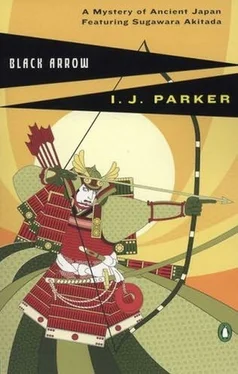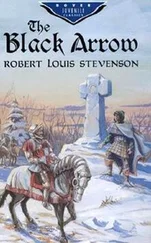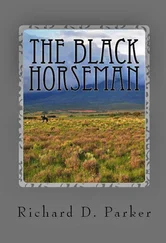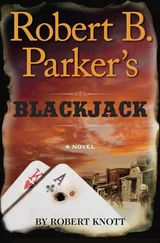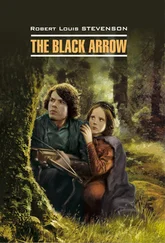I. Parker - Black Arrow
Здесь есть возможность читать онлайн «I. Parker - Black Arrow» весь текст электронной книги совершенно бесплатно (целиком полную версию без сокращений). В некоторых случаях можно слушать аудио, скачать через торрент в формате fb2 и присутствует краткое содержание. Год выпуска: 2006, ISBN: 2006, Издательство: Penguin, Жанр: Исторический детектив, на английском языке. Описание произведения, (предисловие) а так же отзывы посетителей доступны на портале библиотеки ЛибКат.
- Название:Black Arrow
- Автор:
- Издательство:Penguin
- Жанр:
- Год:2006
- ISBN:9780143035619
- Рейтинг книги:5 / 5. Голосов: 1
-
Избранное:Добавить в избранное
- Отзывы:
-
Ваша оценка:
- 100
- 1
- 2
- 3
- 4
- 5
Black Arrow: краткое содержание, описание и аннотация
Предлагаем к чтению аннотацию, описание, краткое содержание или предисловие (зависит от того, что написал сам автор книги «Black Arrow»). Если вы не нашли необходимую информацию о книге — напишите в комментариях, мы постараемся отыскать её.
Black Arrow — читать онлайн бесплатно полную книгу (весь текст) целиком
Ниже представлен текст книги, разбитый по страницам. Система сохранения места последней прочитанной страницы, позволяет с удобством читать онлайн бесплатно книгу «Black Arrow», без необходимости каждый раз заново искать на чём Вы остановились. Поставьте закладку, и сможете в любой момент перейти на страницу, на которой закончили чтение.
Интервал:
Закладка:
Without a word, Akitada turned and strode from the hall. Out in the gallery, he stepped over the dead warriors and threw wide a shutter to gulp in the frigid air. Sleet had gathered like grains of rice on the sill. Below, the land lay dark and forbidding under the heavy clouds. Faintly, the sound of temple bells came on the wind from the distant city.
The icy air settled his stomach a little. His face tingled with cold and when he t6uched it, he found it wet with tears. Ashamed, he rubbed the moisture away. From the courtyard below rose the victorious shouts of Takesuke’s men. He leaned forward and looked down. The Sugawara family crest blazed on the banners. This day he had taken an impregnable fortification for the emperor but lost a loyal friend.
Looking down at his hands he saw that they were stained with blood-Hitomaro’s along with that of too many other men he had killed. How was he to live with his friend’s blood on his hands? Hitomaro had saved his life, and he had stupidly stepped in his way and caused his death as surely as if he had held Uesugi’s sword himself. He clenched his fists until his nails bit deeply into his palms.
Something soft and white drifted in. A snowflake. For him this snow country would always be tinged with blood. He sighed deeply and glanced toward the north pavilion overhanging the ramparts, site of the death of the previous Lord of Takata and the murder of his faithful servant Hideo. It reminded him that he had one more errand to perform.
Hunching his shoulders against the icy air, he walked quickly down corridors. A maid peered from an open doorway, paled at the sight of his blood-smeared face and hands, and ran. When he reached the open gallery, he found that the wind had died down, but the snow still fell softly and silently. There was very little smoke now, and he realized that they must have extinguished the fire.
The door to the north pavilion was unlocked, and inside everything looked the same. He had worried that Uesugi would order a thorough cleaning, but either respect or superstition had caused him to leave the room untouched.
He went to the window above the thick mat where the old lord had died. The crooked blind of speckled bamboo was as he remembered it, and beside the mat was the chest which held the dead man’s bedding and his writing set, the single clue to what had happened that night.
Stepping on the mat, he untied the bamboo shade, half afraid that his guess had been wrong. But it unrolled with a rush and clatter, releasing a sheet of paper which fluttered to his feet. The thick mulberry paper was covered with spidery script and bore a crimson seal.
Picking it up, Akitada noted both signature and seal, glanced at the content, then rolled up the document and put it in his sleeve.
TWENTY-TWO
When they returned to the tribunal late that night, Akitada was exhausted in mind and body from the business of settling affairs at Takata-he had left Kaoru and Takesuke in control- and emotionally drained. The long ride back with Hitomaro’s corpse slung over the horse beside him had given him unwanted time to brood on his actions. Takesuke had congratulated him on his courage, and Akitada had wanted to wipe the look of admiration from his face. At least Tora, who had lost a lot of blood, would heal. Akitada felt profoundly guilty that, of the four of them, he had come out of the fight unscathed.
Genba wept like a child when he carried the body of his friend to a temporary bier in the tribunal hall. There he and Tora would keep watch over Hito’s corpse.
Akitada entered his private quarters only briefly. Seimei tried to fuss over him, but the small amount of bleeding from his old shoulder wound and assorted bruises where his body armor had deflected sword blows amounted to nothing. When Akitada saw the joyous relief on Tamako’s face, it seemed so inappropriate to him that he was sickened and turned from her without a word to seek the solitude of his office. He wanted nothing so much as sleep, oblivion, a few hours of escape from himself-from a man he never knew, from the blood lust that had lain hidden inside him all his life, from the death of a friend.
But it was not to be. By the flickering light of the oil lamp, he saw a strange figure sitting at his desk. A very old man was hunched over the lacquered box of the shell game, turning it slowly in gnarled hands, absorbed in the pattern of the decoration. He raised his eyes unhurriedly to Akitada and nodded a greeting. The yamabushi had returned.
He looked at Akitada for a long moment. Then he gently set down the game and indicated the other cushion. “Please be seated, Governor,” he said courteously in a deep, restful voice. “You look very tired.”
Dazed, Akitada obeyed. He tucked his hands into his sleeves and shivered, but it was not from cold, for it was almost cozy in the light of the single oil lamp casting a warm glow on the desk between the two men.
The old priest pushed the brazier a little closer to Akitada. Steam and a curious fragrance rose from the small iron tea kettle on it. The master reached for a cup, poured, and stirred. “Drink this,” he ordered, sharp black eyes watching from a face as wrinkled and dark brown as a nut.
Akitada tasted, then slowly emptied the cup.
“An infusion of dried berries, herbs, and certain tree barks,” the master said, answering an unspoken question. “You will feel refreshed in a moment and later you will sleep.”
“Thank you. It has a pleasant taste.” The visitor’s solicitude was comforting. Akitada became aware of a welcome warmth. He frowned with the effort to remember. “You’re right. I have had a long and difficult day.” Even the soreness in his shoulder seemed to ease. His eyes strayed to the desk where the yamabushi’s conch shell had joined the black-feathered arrow and the shell game.
“Tell me what happened at Takata,” the priest encouraged.
“We took the manor. Makio is dead … and so is Hitomaro.” And no medicine or spell would make that right again.
“Ah!” A long pause ensued, then the yamabushi shook his head regretfully. “It’s a pity about Hitomaro. I liked that young man.” His silver hair and beard shimmered in the light of the oil lamp. He looked at Akitada and said, “But you, you are alive. You must learn to forgive yourself for what is merely a manifestation of fate. It is a hard lesson, but death is right in its time.”
Empty platitudes, Akitada thought. He felt shame like the thrust of a knife to his belly and turned his head away.
“Come, I did not think you a fool, Governor,” the yamabushi said more sharply.
Angered, Akitada swung back. “I am not a fool. But neither am I a saint or a martyr like you, my Lord. When I lose a friend through my own carelessness, I cannot shrug it off and busy myself with good deeds and prayers instead.”
The old man sighed. With his gnarled finger he traced the design on the lacquer box. “The chrysanthemum is the last flower to bloom,” he murmured. “Its petals fall and the young grasses shrivel and die when the storm of winter touches their brief lives. Death, Governor, is a wide gate no one can close.”
Akitada clenched his fists. “Never mind! You cannot understand.”
The priest laughed very softly. “On the contrary. I, of all people, understand very well. If you know who I am, you should also know that.”
The man’s complete detachment filled Akitada with fury. He leaned forward and stabbed an accusing finger toward him. “I know that you are the late Lord Maro’s older brother, the uncle of Makio,” he growled. “I know that you have a grandson, Kaoru, who has played various roles-among them those of a humble woodcutter from the outcast village and my sergeant of constables. I know about the crime of which you stood accused. I know that you fled, giving up your birthright and hiding among the outcasts as a mountain priest.” He paused and pulled from his sleeve the document he had found at Takata and tossed it on the desk. “And now I also know that you were innocent of the murder of that woman and child. Read your brother’s confession.”
Читать дальшеИнтервал:
Закладка:
Похожие книги на «Black Arrow»
Представляем Вашему вниманию похожие книги на «Black Arrow» списком для выбора. Мы отобрали схожую по названию и смыслу литературу в надежде предоставить читателям больше вариантов отыскать новые, интересные, ещё непрочитанные произведения.
Обсуждение, отзывы о книге «Black Arrow» и просто собственные мнения читателей. Оставьте ваши комментарии, напишите, что Вы думаете о произведении, его смысле или главных героях. Укажите что конкретно понравилось, а что нет, и почему Вы так считаете.
